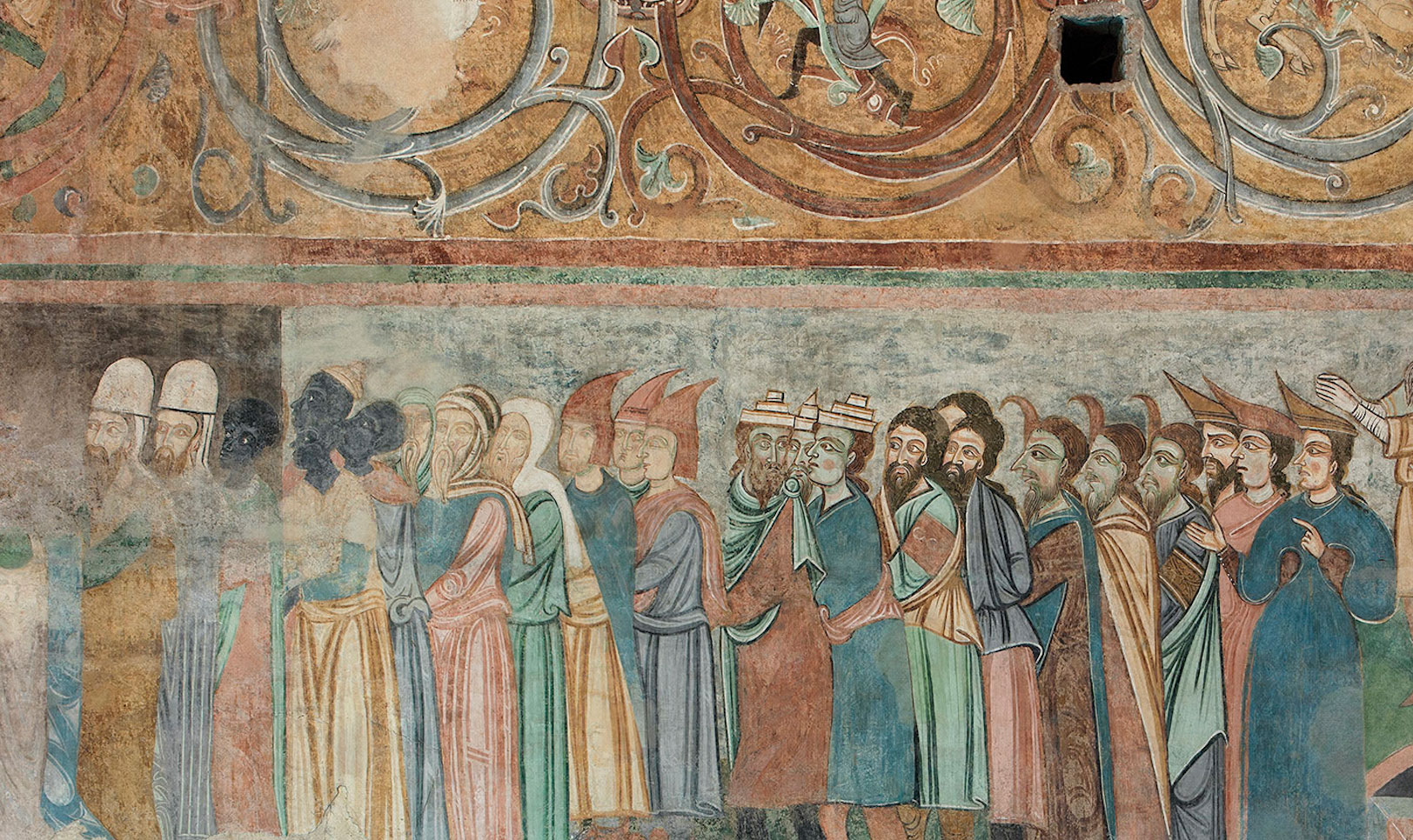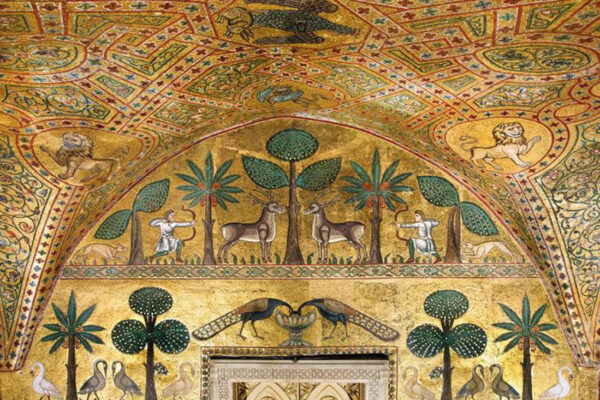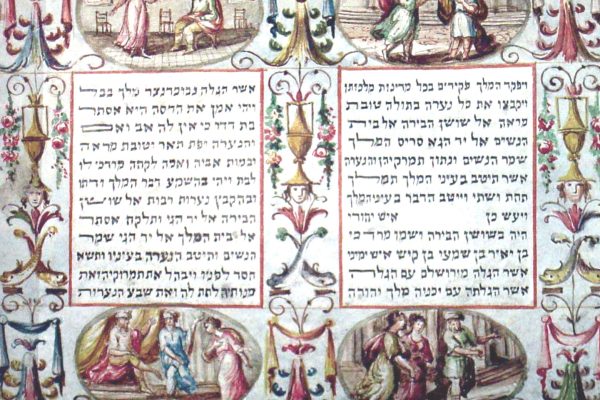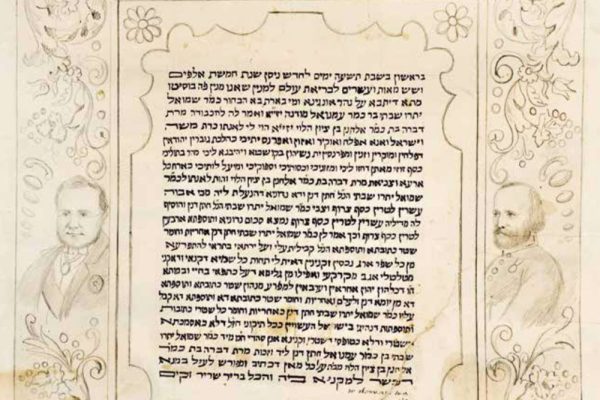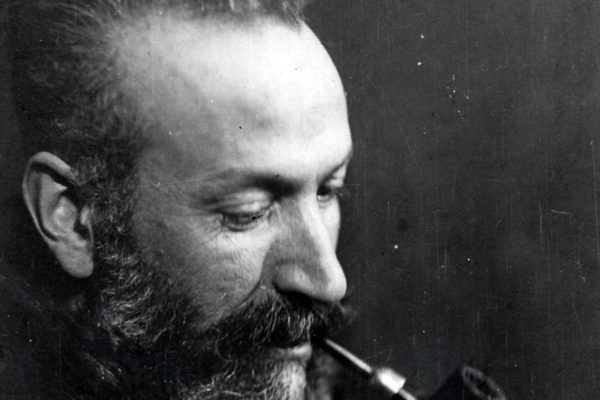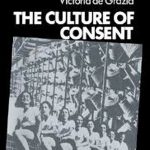Mussolini’s Manipulation of US correspondents in Fascist Italy
.
Mussolini a darling of the American media of the 1920’s and late 1930”s? This long forgotten fact, together with his being described by some of the mainstream American publications as a strong, respected and innovative political leader, constitute the substance of the following interview.
Recent research by historian Mauro Canali unveils in shocking detail the strategies and tactics used by the architect of the first totalitarian state of 2Oth Century Europe -and later Hitler’s main European political and military ally- to spy on, control and manipulate American correspondents in Italy. An apparatus of hundreds of spies, telephone operators, stenographers and technicians followed every word and move of the American journalists, who remained to the end unaware of it.
In this conversation Canali expands on the content of a lecture he gave last fall with David Kertzer during a CPL program entitled Covering Fascist Italy: American Correspondents and Regime Censorship at the Simon Wiesenthal Center’s Museum of Tolerance in NY.
At a crossroads between the history of Fascism, the history of journalism, and more broadly on the relationship between the US and Fascist Italy, his new and groundbreaking research forces one to reconsider the sophistication, and efficacy of the far reaching Fascist propaganda machine.
In stark contrast to the shopworn notion of Fascist Italy as an “operetta dictatorship”, Mussolini’s secret police modeled on Lenin’s Soviet CHEKA, emerges a high functioning model for the Nazi political police.
Mauro Canali is professor of Contemporary History at the Università di Camerino, Italy. Widely respected in both in Europe and the US, Canali’s approach is firmly rooted in archival research and in the close analysis of historical documents. Among his many works he is the author of the first comprehensive study of the history of the Fascist political police Le spie del Regime, Il Mulino, 2004. In 2006 he was a visiting scholar at Harvard University. He is a member of the scientific committee of “RAI Storia” and collaborates with the Journal of Modern Italian Studies, Nuova storia contemporaneaand the daily Liberal.
Alessandro Cassin: You have dedicated much of your work to the study of the inner workings of Italian Fascism. How did you develop an interest in these topics?
Mauro Canali: I approached the subject of Fascism from the perspective of anti-Fascism. Like others historians of my generation, I grew up in an anti –Fascist family, meaning a family who had actively opposed the dictatorship. My father participated in the Resistance, my uncle was killed in Mauthausen, but most importantly I grew up in a home where political discussions where a daily occurrence. My family’s political orientation was toward Marxism. Not only did I learn at a very early age about my father’s experience as a Partisan, I also became fascinated by the newspapers and books he brought home, mostly history books.
AC: Politics in 1960’s Italy captured the passion and the interest of youth in an unprecedented way.
MC: Absolutely. Aside from my father, my political awareness was determined by the Cold War climate of those years: the sharp tensions between The Christian Democrats and the Communist Party.
AC: For Italians of your generation the Fascist/anti-Fascist conflict was inescapable. As a scholar and historian, do you think that your proximity with the subject of your research posed specific obstacles?
MC: If you are referring to the proximity in time, I must say that for historians the recent past offers a much larger amount of available data. If you are referring to a personal proximity, this clearly poses more complex questions. As a historian one needs to distance oneself emotionally from the subject. In my particular trajectory I combined my political activity with my study of history until 1980, when I realized that the two had become incompatible. I felt that in order to conduct historical research I needed to free myself from any kind of ideological conditioning or influence.
AC: How did approaching the study of Fascism from an anti-Fascist perspective impact your initial research?
MC: On the one hand studying, later teaching and writing books about Fascism became my way to live out my anti-Fascist beliefs. On the other I have always been keenly aware that to study any historical period one must be as objective as humanly possible. And I believe that in my writing I have examined and discussed Fascism with the maximum objectivity I was capable of.
AC: You have been a student of Renzo De Felice, one of the most prominent early scholars of Fascism. Many of his views, particularly in connection with the Regime’s relationship to the Jews, have been criticized by contemporary historiography.
MC: I consider De Felice my mentor and feel that my encounter with him shaped positively my approach to the study of history. He took an interest in my thesis and helped me turn it into a book that was later published in a series he edited. The thesis was on dissent within the early Fascist Party in Pisa. Up to that point no one had studied dissent within Fascism and I felt it was a subject that needed to be investigated. I focused in particular on Bruno Santini, a captain and early Fascist party member who, after the March on Rome, distanced himself from the Mussolini government, expressing strong dissent to the point where he got physically beaten and kicked out of the party. In 1923-24, dissent within Fascism was not as marginal a phenomenon as one might assume. As Mussolini entered Parliament and assumed power, he created dissent within both the left and right factions of his own movement. Significantly, within the early Fascist government there were individuals who were close to the dissenters, for instance Cesare Rossi, who was in charge of Mussolini’s press office.
AC: Cesare Rossi’s role in the Matteotti affair is one of the points of departure of your book “Il delitto Matteotti”, soon to be translated into English. That book, as well as your work on the Fascist secret services, is strongly rooted in the gathering and interpretation of documents. Is it fair to say that the gathering and close study of documents characterizes your approach?
MC: I consider myself a follower of De Felice, a man who taught me the need to always compare memory based reconstructions with the related documents. I am wary of history as told by the victorious factions and nations, and above all I am wary of history narrated by people who say “I was there”. Naturally I recognize the importance of testimony, but testimony, when not checked through actual documents, is among the most unreliable of sources. For those of us who think of history as a scientific discipline, memoirs and first hand testimonies cannot be taken alone at face value.
In the case of the twenty-year long Fascist Regime, my investigations have been based on primary sources, meaning actual documents.
AC: Dictatorships gain and maintain power through complex systems of spying and controlling the population. Your contribution to the understanding of Fascism is centered around the working of its secret services…
MC: I began studying the history of Fascism by writing a biography of Cesare Rossi, long believed to be a minor figure. In truth Rossi was a sort of grey eminence in Mussolini’s first government. He was the head of Ceka Fascista, the first Fascist secret police that Il Duce had modeled on the Soviet secret police. Ceka preceded OVRA, which came into being only in 1926-27, and was Mussolini’s first political police. Mussolini placed Cesare Rossi at the head of Ceka, which was to report directly to him. The other main figure in Ceka was Giovanni Marinelli, who was in charge of funding and administering the secret police.
AC: Through your work on Cesare Rossi you found yourself revisiting the Matteotti murder, Mussolini’s first political assassination…
MC: More specifically I was compelled to undertake the first scientific study of the legal documents of the Matteotti trials, which pointed to Rossi’s involvement and shed light on the workings of the Fascist Ceka.
AC: Through those documents you uncovered some deeply disturbing state secrets. How can it be that the truth about the Matteotti murder took more than half a century to emerge?
MC: In Italy we have a law that prohibits public access to the trial papers of any violent crime for 70 years. While the first Matteotti trial took place in 1926, the second one was held after the fall of the Regime, in 1946. If we were to wait 70 years we would reach 2016…
AC: How did you get access to the papers?
MC: I began by the discovery, in England, of Gaetano Salvemini’s papers on the trial. I found and published his correspondence with Giuseppe Modigliani who had taken part in the Matteotti trial as the lawyer for the Matteotti family. Salvemini, who at the time of the murder was living in London, managed to have Modigliani send him photocopies all of the trial papers. I found that Salvemini had begun studying those documents, but had to interrupt it when he left for the USA.
AC: Salvemini’s papers had never been looked at in relation to Matteotti?
MC: Historians did not know about them. Actually, I inferred from references to the trial papers quoted by Salvemini that he must have had all the documents, and went looking for them in London. Knowing that his papers had ended up in the library of the London School of Economics, I took a plane to London, showed up there and simply asked the librarian for Salvemini’s papers on Mateotti. To my great surprise, after a long wait they produced a cart with eight large stacks of papers containing the complete Matteotti trial proceedings…
AC: Your book on Matteotti is entirely based on those papers, a radically different approach to everything that had been published on that case.
MC: That work made me realize the full potential of historical research grounded in solid evidence. Up to that point all the published works on Matteotti were based on testimony, newspaper stories and indirect sources.
AC: Il delitto Mattteotti: Affarismo e politica nel primo governo Mussolini was published in 1997; what impact did that book have outside academic circles?
MC: What captured public opinion and constituted the most startling revelation was my reconstruction of the complex tangle of business and economic interests that prompted the Regime to kidnap and kill Giacomo Matteotti.
Clearly there was a strong political motive: Matteotti was a formidable adversary to Mussolini. However the decision to eliminate him was taken as the Regime realized that Matteotti suspected, was investigating and was in the process of discovering some of the Fascist establishment’s secret economic and financial dealings. Among other things, Matteotti had uncovered documents showing how Mussolini, in exchange for a vast amount of money, had granted the American company Sinclair Oil the rights to explore and exploit the Italian territory.
AC: This explains in part the dynamic of the murder.
MC: Exactly. After stopping him, engaging him in a fight and killing him, his assassins stopped to pick up all the papers from the street, before shoving the body into a car. Matteotti’s brief case and the documents that he intended to present to Parliament that day, were never recovered…
AC: The Matteotti murder is often referred to as marking Mussolini’s move toward a totalitarian state. After working so long on the trial papers, do you agree that it marks the beginning of the dictatorship?
MC: There is no doubt that the murder was a watershed event.
Some have defined the Matteotti’s murder a totalitarian act: that is true in part, yet poses interpretative problems. Some historians advance the argument that the regime was forced into totalitarianism to cover up the murder. In other words that before this murder Fascism was not moving toward a dictatorship, and was sort of forced into it. My position is that as soon as Mussolini took power, his movement already contained the germs of a totalitarian dictatorship. The Matteotti murder uncovers the true face of Fascism.
AC: Your next research project that led to the volume Le spie del regime, focused on Mussolini’s secret service, OVRA.
MC: When Mussolini consolidated his power, between 1925 and the approval of the so-called leggi fascistissime in November 1926, his first move is to create a political police force whose operative arm is what we know as OVRA. The early leadership of OVRA contains many of the same people Mussolini had employed in his earlier Ceka Fascista, which further highlights the continuity of the two institutions. OVRA quickly became Mussolini’s main repressive instrument and a centerpiece of the Regime.
AC: One of the large open questions that your book poses is the degree of popular consent that Mussolini’s government enjoyed. In other words could this his vast and well organized network of spies and informants occur without the willing participation of large sectors of the population?
MC: In 1970 Renzo De Felice published a book – Gli Anni del Consenso – proposing that Mussolini actually enjoyed popular consent for a certain number of years. That book and its central idea created much controversy. My approach and my intention were to study the secret police’s activity and methods in order to understand precisely how the regime created, coerced and maintained consent.
AC: While OVRA was surrounded by a degree of secrecy, it was important as a deterrent to political adversaries that everyone knew something about OVRAS existence, scope and methods.
MC: It became of paramount importance that everyone knew that OVRA could take action against anyone at anytime. This created a climate of preemptive terror, intimidation and abuse that was central to the totalitarian state.
AC: What does the acronym OVRA stand for?
MC: Literally it meant Organizzazione Volontaria Repressione Anti-Fascista, but Mussolini chose it because it sounded like piovra (octopus), which could reach in all directions through it tentacles. The Fascists wanted people to know about OVRA’s existence and far reaching ability, as a deterrent. The idea was to make the citizen feel that either he collaborated with OVRA or at any time he could become its target.
Knowledge of OVRAs power determined much of the social and political climate of those years. In his diary from those years, the writer Giovanni Comisso noted that the presence of OVRA was so pervasive as to have an effect on the way one behaved among friends and even in romantic relationships. OVRA’s actual power was overestimated: for instance people believed that telephones were bugged; even at home, while the phone was not in use, they tended to have sensitive conversations far from the telephone.
To go back to your earlier question, I believe that the mechanism and capillary organization of Mussolini’s political police is the key to understand the regime’s grip on the population and on power. Consent can be given voluntarily or obtained through coercion. OVRA was the principal instrument of coercion.
AC: From your book one gets the impression that OVRA’s activities determined a climate of fear and mistrust that affected not only the anti-Fascists, but also society at large.
MC: The impact of OVRA was felt at all levels of society. Even within the Fascist Party, OVRA was often used to settle disputes and rivalries. Few people knew exactly how it worked, but everyone feared it. I would say that under Fascism, Italy was living a sort of social pathology. I am referring to a kind of pathology that every totalitarian state necessarily creates to hold on to its power.
AC: Most recently you have been studying the Fascist censorship of American correspondents in Italy, and in a larger context, the specific image that Fascist Italy wanted to project to American public opinion. How do you explain this special attention to the USA?
MC: Mussolini was convinced that the USA represented a very interesting “market” and paid a lot of attention to the US press. He was convinced that the Italian-American population could be used to apply pressure on the American government, and foreign policy. Above all the Italian Fascists wanted, and to a certain degree succeeded in establishing a direct dialogue with the Italian-American community. Italy’s foreign policy was specifically aimed at boosting nationalistic feelings and loyalty within certain sectors of that minority.
AC: While there was no such thing as a free press in Fascist Italy, you research uncovers the specific attention that the Regime paid to American correspondents.
MC: The regime wanted to control and manipulate American correspondents: they were keenly aware of the importance of having the American public opinion view Italian Fascism positively. There was a significantly greater attention to the correspondents from American papers: while journalists from countries such as France and later England were denied access to any important information, there was a clear attempt to feed American correspondents the kind of stories and information that would make Italy look good. Their role was to help depict an image of Italian Fascism as respectable and efficient.
AC: What were the mechanisms through which the Fascist regime manipulated US foreign correspondents?
MC: First of all, there was an attempt to prevent US correspondents to experience the violent, repressive side of Fascism. They were limited in their movement and deliberately prevented from encountering certain people and situations. Also, the US journalists rarely spoke Italian and had almost no experience with Italian bureaucracy. They were in need of interpreters and mentors, which were provided by the Foreign Press Association, itself an instrument of Fascist propaganda. The interpreters were inevitably spies, closely monitored by OVRA. I have tracked down the individuals involved in this work, among others Vittorio Falorsi and Luigi Boschetto, who while “assisting” US journalists, would write detailed reports on them for the Fascist police. The journalists were accompanied and monitored in all their movements and contacts, even in their social lives. The spies often presented themselves as friends and were able to frequent the journalists at home and befriend their families. Many of the police reports involved conversations between American journalists, which were tapped or monitored.
AC: The American journalists in Rome were sometimes assigned to cover the Vatican, which in turn led to a further level of State control…
MC: The way it worked was that US correspondents, such as Thomas Morgan, Michael Chinigo, Camille Cianfarra also assigned to cover the Vatican. Immediately they would be introduced to Monsignor Pucci, a Fascist spy, who spoke good English and was working for the North American Newspaper Alliance. Pucci would report on them in detail to Arturo Bocchini, the Chief of the Fascist Police. All the spies who worked with the foreign journalists, including Monsignor Pucci, were themselves journalists and presented themselves as friendly and helpful colleagues to the Americans.
AC: Were the major American papers and news organizations aware of any of what was going on?
MC: Probably not. They sent some of their top journalists and trusted their professionalism. Up until Italy’s entry into the War, they did not suspect the level of censorship and control that their correspondents were experiencing. The journalists themselves were largely unaware. In examining the private letters of the American reporters from the time, and later their memoirs, I am convinced that they did not suspect that their Italian “friends” were actually paid spies.
AC: At some point the foreign journalists must have realized that they were being manipulated…
MC: I would say that this started to occur just after the Italo-Ethiopian War. By then, Arnaldo Cortesi, the correspondent of the New York Times -who later won a Pulitzer Prize- and the correspondents of other major papers had become suspicious. Arnaldo Cortesi and Camille Cianfarra (who later died in the Andrea Doria’s shipwreck) were among the best American reporters in Italy and the most closely watched. As Italy was about to enter the War, the Fascists expelled many foreign journalists who were becoming critical. Cortesi and Cianfarra were replaced. Cortesi was called back and the New York Times sent over another famous reporter: Herbert Matthews who had been reporting on the Spanish civil war.
AC: American historians, including Jonathan Steinberg, have often characterized Mussolini’s regime as a kind of “operetta dictatorship” where the official rhetoric was often accompanied by inefficiency, loopholes and mismanagement. On the contrary, your work on OVRA and on the extensive manipulation of foreign journalists, points to sophisticated organizational, technological and psychological skills.
MC: I sincerely find the suggestion of a “mild Dictatorship or an Operetta Dictatorship” uninformed and superficial. It completely undermines the often-tragic daily experiences of those who lived for twenty years under Fascism.
Italy’s transformation into a totalitarian state was unique and its study does not benefit from comparisons to other countries. Mussolini acted within a country with a strong and well-organized Church, a monarchy that enjoyed popular support, a strong working class and many other unique characteristics. He initially chose a soft path toward absolute power, but the initial “softness” was a strategy, not a characteristic.
Mussolini’s regime could not have survived for two decades had in not held onto its power with great efficiency. OVRA’s secret activities formed a vast, capillary network of spies and informants that took full advantage of the technology of its time. Unsuspecting American journalists were subjected to extensive phone tapping. In fact in the basement of Palazzo Chigi, by 1939 there about 500 stenographers constantly at work, listening in on were phone calls, typing conversations and reports in multiple languages. The technological reach of the Regime was vastly more sophisticated and efficient than anyone suspected.
I have found some of the transcripts of these telephone calls, but the bulk of these documents disappeared. This is yet another of Italy’s postwar unsolved mysteries…
AC: Where you able to establish if there were any direct consequences for the journalists, coming from their tapped phone exchanges?
MC: Certainly the where times when after listening to a conversation the Italian authorities enforced the expulsion of a journalist from the country, and asked the paper to replace him. The two American papers with the greatest number of correspondents that were asked to leave Italy were the Chicago Tribune and the Chicago Daily News. Both those papers were run by Robert “the Colonel” McCormick, who had anti-Fascist sympathies, was a firm anti- interventionist and thus allowed his journalists to be more critical of Mussolini.
AC: American reporters must have experienced a real clash of values and work ethic when confronted with the Italian press of that time.
MC: Certainly. The American reporters would arrive and attempt to follow their training and their professional standards: they wanted to participate to events, see for themselves, conduct interviews and report. None of these were allowed or tolerated. A case in point was the arrival in Rome of George Seldes (sent by the Chicago Tribune). As soon as he arrived in Italy he attempted some independent investigation into the Matteotti murder, and was promptly asked to leave the country…
AC: How did these expulsions occur?
MC: The Italian political Police would contact the American Ambassador and demand that the particular individual cease his activities and be re-patriated immediately.
AC: What do you think were the greatest challenges for American journalists in understanding and reporting on Fascist Italy?
MC: Aside from the censorship and roadblocks imposed by regime, American correspondents encountered various cultural barriers. Many had previously worked only in the US, some had been in the UK and Germany, but none truly understood the nature of Italian Fascism. One of the difficulties was that there was no political precedent. Mussolini’s regime was largely a mysterious entity, nowhere else in the Western world had a totalitarian regime come into power through a transformation of a liberal democracy. For journalists who were trained in a democracy, believed and relied on the freedom of the press, Mussolini’s Italy was difficult to grasp.
AC: Can you give some examples of their cultural misunderstandings?
MC: Leaving aside the journalists who had come to Italy to interview Mussolini and had been charmed and fascinated by him, I would say that the majority of reporters did not know what to make of him.
In the mid 1920’s American reporters were struggling to predict or describe the direction Mussolini’s government was taking. In truth, they mostly portrayed what they saw quite favorably. In a failed attempt to understand an unprecedented political scenario –the birth of Fascism and of a totalitarian state- the Americans were looking for comparisons within their own recent history. Many of them compared Mussolini to Theodore Roosevelt: they saw the Italian dictator as firm and decisive leader, a nationalist, etc. They did not realize they were looking at a completely new political phenomenon. As soon as the more astute of them began to understand the nature of Fascism they were sent away, expelled. Years later many of the journalists who were expelled wrote memoirs. I am presently studying these memoirs and find them of great interest, both for what they simply did not understand and for how they began to see through the smoke screen that had been prepared for them.
AC: What determined the beginning of a more critical role of foreign correspondents in Italy and when did it happen?
MC: Foreign policy played a large role. By the ‘mid 30’s, as Italy’s relationship to France and England was going sour, journalists began to pose larger questions. Certainly the war in Ethiopia was a wake-up call.
While some journalists understood the war as a colonial aggression, others continued to believe the Fascist propaganda. A glaring example was the New York Times’ senior correspondent Herbert Matthews (who later had a complete change of heart). He was sent to Ethiopia to follow the Italian troops. He wrote a book: “Eyewitness in Abyssinia”, from a pro-Italian point of view. He concerned himself solely with the events of the actual campaign, not on the rights and wrongs of a Fascist nation aspiring to become an empire. Other US journalists instead saw in the African campaign the first signs of Mussolini’s racial intolerance and his imperialistic ambition.
While the Ethiopian war, opened the eyes of some correspondents, on the level of bilateral relationship between Fascist Italy and the USA, things were not clear-cut. While Roosevelt understood the war as an aggression, it could not have occurred without American oil. The USA, not being a member in the League of Nations, did not participate in the latter’s boycott of Italy and thus American oil companies were free to supply the Italian army.
However, a much more significant change in the US press portrayal of Mussolini occurred when Italy sent troops in support of Franco during the Spanish Civil War.
AC: Often in the course of Italian history, the way the country was perceived abroad has served Italians to better understand their own country…
MC: I have found myself thinking that if the work of American correspondents in Italy during Fascism and their later recollections had been studied by Italians, it would have helped clarify much of the heated historical debate on the nature of Fascism. Americans had the luxury of being able to compare the workings of a democracy with something that had become quite the opposite.
AC: While Mussolini put great efforts into the construction of the “Fascist Man” and of Italy as a brave and fierce nation of warriors, in the immediate post-war period the myth of the good Italian immediately took hold in the popular imagination Italy and abroad. What allowed for this drastic change of self –representation?
MC: One has to remember that Mussolini abhorred the idea of “Italian goodness”.
Italians are perhaps different from other nations in culture and style. To talk about “national character” does not make much sense, particularly in light of Italy’s belated national unity.
The ideas of the “good Italian” and the “good Italian soldiers” were created for political reasons in the aftermath of a war Italy had lost. Italians, who had been Hitler’s main military and political European ally, wanted to take distance from the horrors of the Nazi regime that were beginning to surface. In an oversimplification of that alliance, the Nazis were the “bad guys” and the Italians, if not good, certainly “less evil”.
As a historian I believe that comparisons between different nations, political realities or “national characteristic” are seldom useful and always a treacherous ground for any serious reflection.



